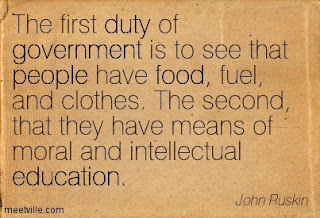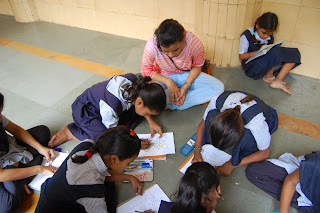“Irony
is the gaiety of wisdom and the joy of reflection.”
In
India however, irony seems to be the daily staple of our lives as we reflect on
the happenings in the country.
 |
| The best defense to a false degree accusation. |
From
being a country where pissing on the road
is fine, but kissing/any form of PDA isn't and where moms want their daughter
to control their husbands and expect their sons to control their wives, the
latest in a long list of ironies is that Smriti, Irani, the cabinet minister
for Human Resource Development, responsible for education in the country
herself has extremely murky education credentials.
In the ongoing furore that followed
this revelation, one could not help but wonder, how education came to be such a
controversial topic at times.
Even before the
above mentioned incident occurred, a massive “fake degree scam” in Bangalore
was unearthed where offers of degrees and certificates were openly advertised.
The ads, posted on various websites, claimed to provide degree certificates
from various varsities in no time to (un?)suspecting netizens. Another popular
example of disrespect for our education system was the famous IIPM
or Indian Institute of Planning and Management issue, where a complaint by the
University Grants Commission UGC, revealed that the institute is ‘cheating’ and
‘fooling’ its students as it is not recognised by any regulatory body.
 |
| Scams are more staple in our country than rice and wheat. |
Even despite
outright illegal acts, a lot of
activities in India’s education sector have been in a certain grey area; these
include the system of “donations” to gain entry into universities, the setting
up of universities and educational institutes without accreditation etc.
The main reason for a general
sense of disrespect and heedlessness towards the education sector, is mainly
that education is either viewed as a simple means to an end; students look at
degrees from colleges as one way tickets to placement with an MNC and lifelong
series of foreign trips and a priority savings account with Axis bank, or
education is viewed as an inconvenience to be dealt with before entering the
job sphere.
Education is neither of these two;
it is meant to be an enlightening experience, to prepare you for the numerous
challenges that you are inevitably to face in your later life.
 |
| Rural areas have particularly low literacy and education rates |
A degree is meant to be nothing
but a proof of these efforts, and a sign that you have the knowledge required
to survive in the world, instead of being a “employable” stamp.
The moment that
we as a country realize this, education and fake degree scams will cease to
exist, and rural parents will start sending their children to schools 57.8 million
children are out of primary school globally with India, ranking among the top
five nations with 1.4 million children being out of school.
In the meantime, one can only hope
that our other ministers make more educated
claims henceforth.
- Anand Banerjee is a creative intern with +Citizens Association For Child Rights, a non profit working in public schools on India to improve the standard of education and well being of children.
www.facebook.com/CitizensAssociationForChildRights
www.ngocacr.com









